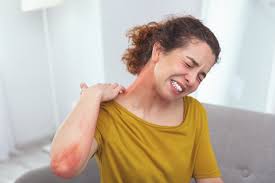Many of us enjoy the outdoors. However, the outdoors also comes with its share of potential dangers. One of the hazards of great outdoor activities is insect bites. For example, an allergic reaction to a bee or other insect sting can be hazardous and lead to life-threatening conditions. One of such conditions is anaphylactic shock.
What is Anaphylactic Shock?
Anaphylactic is the appropriate response of the immune system to an allergen. This condition develops rapidly, and just a tiny amount of the allergen could result in an acute allergic reaction and often lead to a medical emergency.
The most common culprits include food allergies, drugs, and insect bites. It commonly affects the entire body, causing a sudden onset of swelling, respiratory distress, and a severe drop in blood pressure, among other symptoms.
Additionally, anaphylaxis can increase the risk of developing a heart attack and stroke.
Symptoms of Anaphylactic Shock
Anaphylaxis usually develops shortly after exposure to an allergen. This reaction varies in severity depending on the amount of allergen exposure. During an anaphylactic shock episode, the immune system goes into overdrive, and any of the following symptoms may occur:
- Itching
- Metallic taste in the mouth
- Swelling of the throat
- Difficult breathing
- Flushing of the skin
- Cramps and nausea
- Increased heart rate
- Weakness due to a decreased blood pressure
- Collapse and unconsciousness
Anaphylaxis affects more than 5% of the US population every year. The pathophysiology of anaphylaxis resembles several other diseases, and over 750 of these episodes result in death.
Emergency Measures when Symptoms Occur
When your loved ones experience Anaphylaxis symptoms, you can perform the following emergency measures to relieve discomfort.
- Ensure the victim’s clothing is loose around the neck and waist.
- Place the victim’s head to one side to ensure open airways
- Listen for signs of breathing by placing your ear next to their mouth
- Gently press two fingers adjacent to Adam’s apple on the side of the neck to check for a pulse
- Administer emergency medication if the victim has one in possession
Tests and Diagnosis
For proper diagnosis, you must disclose any known allergies you have to your physician. During a physical examination, your doctor will seek to determine whether any foods, medications, or materials may trigger symptoms.
Your physician may recommend keeping a food diary to ascertain food allergies. Your doctor will perform tests on your blood to determine whether you have allergies or not.
Performing this test will allow your doctor to rule out conditions such as heart/lung diseases, psychological issues, mastocytosis, and seizure disorders that may be causing your symptoms.
Prevention of Anaphylactic Shock
The most reliable method to prevent anaphylaxis is to avoid all known triggers. You can also:
- Wear a band or medical bracelets indicating your allergies to different substances and medications
- Always keep an emergency medical kit containing supplies such as an epinephrine autoinjector to treat unexpected circumstances.
- If you have food allergies, read the labels and ingredients for indications of known triggers.
- Always wear long-sleeved clothing and pants to avoid allergies to insect stings.
- And always inform your family and friends about your condition and how they can help you in case of an emergency
Anaphylactic Shock Treatment
While prevention is the best medicine, you cannot always avoid an allergic reaction. The easiest way to prevent complications from anaphylactic shock is always to have your medication around.
Anaphylactic shock medication comes in different forms, such as pills and shots; however, shots are more effective because allergy shots (epinephrine injection) travel directly into your bloodstream and help to open the constricted airways.
You can call an ambulance for emergency care to prevent the risk of a second reaction (biphasic reaction). It is essential to check the shelf life of your shots and replace them regularly.
In severe cases, your doctor may administer antihistamines and steroids to reduce symptoms and IV medication to promote a healthy circulatory system.
Conclusion
Seeing someone go through anaphylactic shock can be terrifying. It is crucial to act promptly when a friend or family member has suffered an allergic reaction. Call 911 and seek emergency medical attention immediately.
Maintaining a supply of all medications at all times is critical to preventing life-threatening complications.


